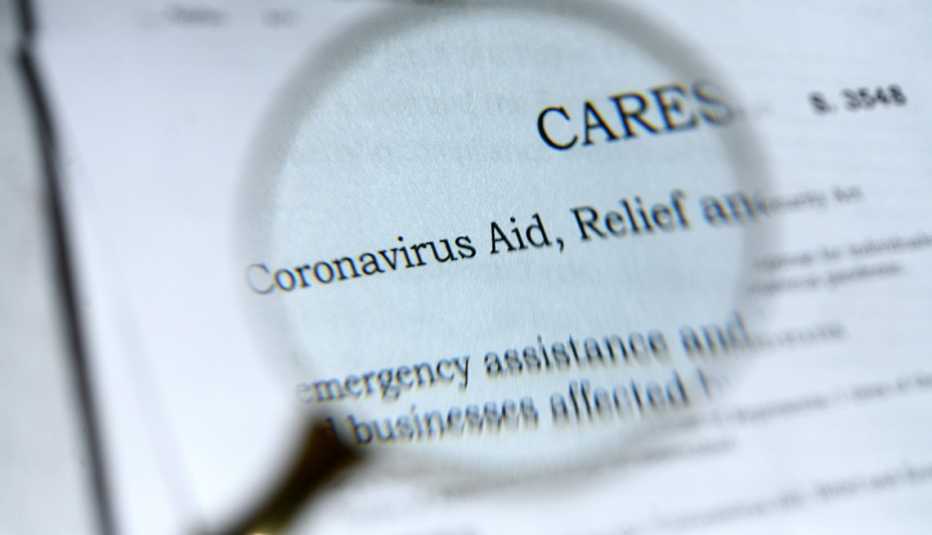 part of the title of the regulation 2020 Coronavirus Aid, Relief and Economic Security Act" width="1140" height="655" />
part of the title of the regulation 2020 Coronavirus Aid, Relief and Economic Security Act" width="1140" height="655" />  part of the title of the regulation 2020 Coronavirus Aid, Relief and Economic Security Act" width="1140" height="655" />
part of the title of the regulation 2020 Coronavirus Aid, Relief and Economic Security Act" width="1140" height="655" />
Editor’s note: The IRS is in the process of developing procedures for the issuance of stimulus payments to Americans, as called for under the CARES Act. These procedures are evolving, and the IRS has not yet worked out all of the details. AARP is monitoring the IRS closely and will provide the latest information on stimulus payments as soon as it becomes available.
| The Internal Revenue Service (IRS) reversed course on April 15 and announced that recipients of Supplemental Security Income (SSI) will receive $1,200 stimulus payments automatically. The automatic payments will be issued no later than mid May, according to the IRS, generally in the same manner SSI recipients normally receive benefits.

Join AARP for just $9 per year with a 5-year membership and get a FREE Gift!
“AARP fought hard to ensure millions of low-income older Americans, the blind and those with disabilities who rely on Supplemental Security Income will now receive their economic impact payments automatically,” said Bill Sweeney, AARP’s Senior Vice President for Government Affairs. “AARP is very thankful the Social Security Administration and the IRS were able to work together to get these payments out quickly and conveniently to those Americans who need it the most right now."
SSI is administered by the Social Security Administration (SSA). The federal program benefits people who are 65 and older, blind or disabled, and who have very limited income and financial resources. SSI is funded by general tax revenue, not Social Security taxes.
Initially, the IRS indicated that SSI beneficiaries, who typically aren’t required to file tax returns, would need to either file a tax return for 2019 or register for a stimulus payment through a web tool for non-filers on IRS.gov. But the new guidance from the IRS grants $1,200 stimulus payments automatically to SSI beneficiaries without the need for additional paperwork such as a tax return.
SSA assured SSI beneficiaries that stimulus payments won't count as income for SSI recipients, and the payments will be excluded from financial resource calculations for 12 months.


ARTICLE CONTINUES AFTER ADVERTISEMENT
The maximum amount of a stimulus payment is $1,200 for a qualifying adult. There is also an additional $500 stimulus payment available for each qualifying child under the age of 17. While SSI beneficiaries will receive the full $1,200 stimulus payment automatically, those who didn’t file federal tax returns in 2018 or 2019 will need to use the IRS online tool for non-filers to register to receive an additional $500 stimulus payment per qualifying child. The IRS is urging SSI beneficiaries to register by May 5 to avoid delays in receiving the additional $500 stimulus payment per eligible child. Those missing the May 5 deadline will need to file 2020 tax returns next year to claim the $500 child stimulus payments.